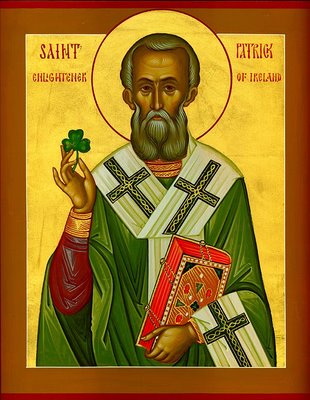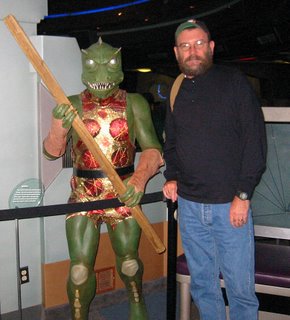+In the Name of the Father, and of the Son, and of the Holy Spirit, One God. Amen.
Today is the Sunday of Orthodoxy, a day of tremendous and jubilant celebration for Orthodox Christians throughout the entire world. On this day we commemorate the triumph of the apostolic Christian faith in its victory over the iconoclasts of the eighth century.
In those days there arose a serious and vicious attack against true belief in the incarnation of Christ, which took the devious “back door” approach of an assault upon the holy icons of the Church. Claiming that the icons were equal to idols condemned by the Second Commandment of God in Exodus 20, the iconoclasts (literally, “icon-smashers”) defaced and destroyed vast numbers of ancient icons in the churches and persecuted or martyred many thousands of Orthodox defenders of icons. The Seventh and final Ecumenical Council was convened in 787AD to put forth the traditional apostolic belief which upheld the proper veneration of icons and anathematized those who vilely accused the holy images of being idols.
The iconoclasts were heavily influenced by a number of factors external to Christianity including among them Gnosticism, which was a very early heresy—still around in various forms even today—that denies the incarnation of Christ. The Gnostics, who really were nothing more than pagans in Christian guise, held to a core belief known as “dualism” which asserts that the material world is evil and that the immaterial God would never defile Himself by being joined to it in any substantial form. The Christian revelation stands in sharp contrast to this, teaching that the material world is not evil, only fallen, and that mankind and all the material creation from which we were formed is raised up and restored by being joined to God through the incarnation of Christ.
The apostles fought Gnosticism fiercely. St. John wrote against their beliefs saying, “By this you know the Spirit of God: Every spirit that confesses that Jesus Christ has come in the flesh is of God, and every spirit that does not confess that Jesus Christ has come in the flesh is not of God. And this is the spirit of the Antichrist…” [1 John 4:2-3] Lest anyone fail to understand the reality of the incarnation, St. Paul wrote bluntly, “In Him dwells all the fullness of the Godhead bodily” [Colossians 2:9]
The apostles were unabashedly incarnational in their faith and understood that God had joined Himself to man in order that man might be filled with God, ever progressing toward “God-likeness”, being “partakers of the divine nature” as St. Peter wrote. And it is this very thing that the holy icons of the Church portray so well. They show Jesus Christ as having come in the flesh, not merely “appearing” as a man, but literally becoming a man. They depict His holy ones, the saints, as being filled with God and transformed from their fallen state to a state of divine grace through their union with Him. What the apostles knew, and the holy icons portray, is that by joining our humanity to His deity in hypostatic union, the Son of God fills us with the energies of His divine nature, reforming the image of God in us, healing the sickness of sin, and leading us to glorification.
Much of this profound understanding of the incarnation and its ramifications has more or less evaporated from contemporary Christian thought. Many of today’s Christians unfortunately are taught little more than the idea that Jesus took flesh to die for our sins. The fuller meaning of the incarnation including the essential Christian concept of theosis, boldly described by St. Athanasius with the words, “God became man so that man might become God” seems strangely unchristian to them. They see salvation not so much as the restoration of man in Christ, but mostly as God forgiving our sins in order to save us from His own wrath. They depict grace as an “attitude” of God toward man, rather than as divine energies available through the incarnation which fundamentally transform man. They see Christian transformation itself as largely a mental process focused on gaining abstract bible knowledge combined with endless schemes that promise if you just learn the right “biblical principles” you can unlock the power of God in your life. Even the sacraments, those extremely physical manifestations of the grace of God, have been reduced to mere symbols and memorials only, as if matter—even sanctified, holy matter—were of less importance than the pure inward contemplation of God. They have become in essence modern day Gnostics, setting aside the physical to focus on the spiritual and gaining neither as the result.
By rejecting the Seventh Ecumenical Council and setting aside the wisdom of the holy fathers in regard to the necessity of icons to safeguard the incarnational aspects of the faith, they have proven the fathers to be right by their own apostasy and error. Holding to a form of godliness, they have truly denied the indispensable and tangible power of it.
What about the charge that icons are a violation of the Second Commandment? Perhaps this is best answered by St. John of Damascus, one of the leaders of the fight against the iconoclasts at the Seventh Ecumenical Council. He wrote, “Of old, God the incorporeal and uncircumscribed was never depicted [in images made by man]. Now, however, when God is seen clothed in flesh, and conversing with men, I make an image of the God whom I see. I do not worship matter; I worship the God of matter, who became matter for my sake, and deigned to inhabit matter, who worked out my salvation through matter. I will not cease from honoring that matter which works my salvation.”
You cannot get much more incarnational than that! To St. John the answer was clear. Under the Old Covenant, God was immaterial and rightly could not be depicted in image. But under the New Covenant, God became matter for our sakes and material images of Him could now be made by human hands so that we would never forget that through this blessed matter of Christ’s incarnation our salvation is worked out by God. Icons are not idols, which are false gods and therefore nothing. Icons are images of the incarnate true God and of His deified saints. Furthermore, Orthodox Christians do not worship icons but venerate or give honor through them to those persons or events that the icons depict.
In this age of growing apostasy, the Orthodox Church continues to stand out—for awhile longer at least—as a beacon of true belief. How much longer or how brightly that beam may shine may depend on how willing we are to live our Orthodox faith and incarnate our holy traditions in a world increasingly leaning toward the spirit of Antichrist.
Let us become in our own day defenders of the holy icons together with the true faith that these represent, by integrating in our lives purity of belief and soul and body which are all of equal importance to God. Let us strive for the transformation to holiness in Christ that we need and this world needs in the ever encroaching darkness.
+To the glory of God the Father, the Son, and the Holy Spirit. Amen.





